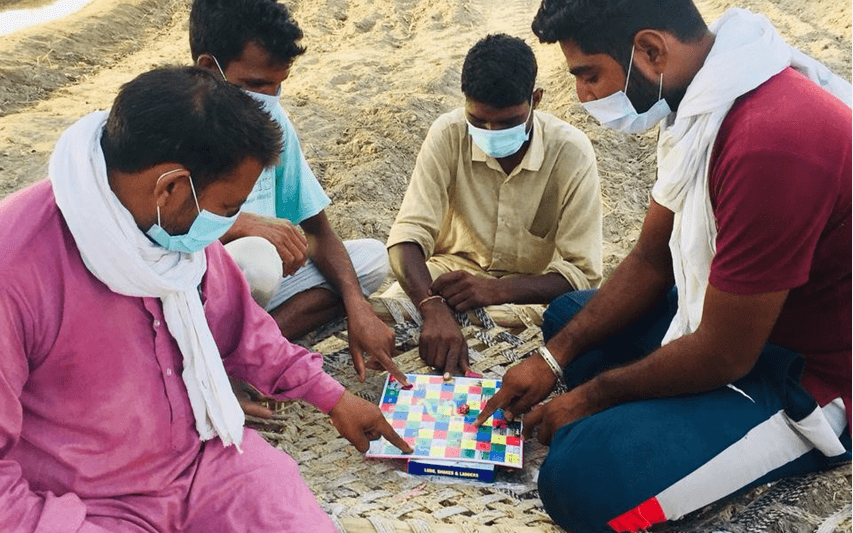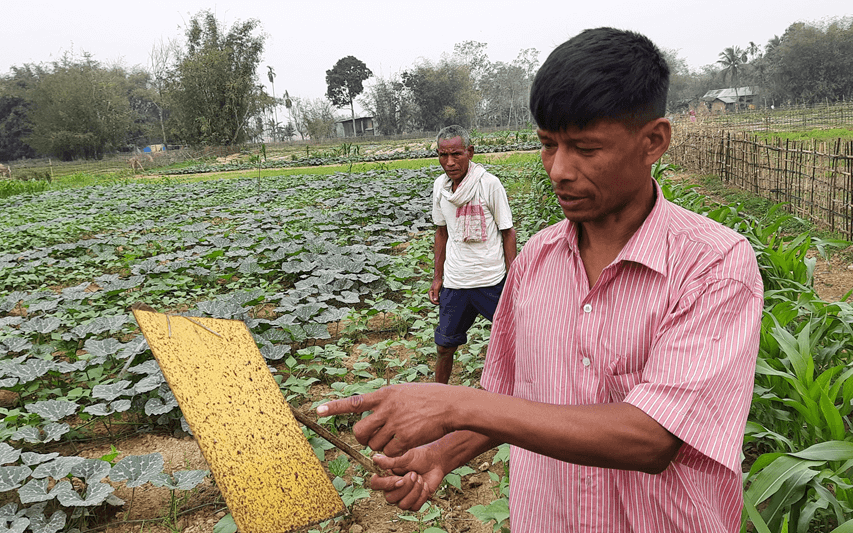Newsletter
Don't miss a thing!
We regularly provide you with the most important news, articles, topics, projects and ideas for One World – No Hunger.
Newsletter
Don't miss a thing!
We regularly provide you with the most important news, articles, topics, projects and ideas for One World – No Hunger.
Please also refer to our data protection declaration.

Out of 40 consortia applying from around the world 14 consortia have been invited to present their innovative concept in form of an online-pitch and to address questions by the international expert-jury. Against this backdrop, the expert-jury has made a decision and awarded six consortia with 50,000 Euro funding each for a five-month proof of concept. Three out of the six semi-finalists were selected as finalists and awarded an additional funding of 100,000 Euro for project implementation in May 2022.
Advancing agroecology is among the key priorities for reaching sustainable development goals. While agricultural research has demonstrated the relevance of agroecological farm and management approaches for resilient and sustainable smallholder livelihoods, a gap persists regarding their implementation. Agroecological approaches require the co-creation of knowledge through exchange at eye level between scientists and farmers and participatory extension.
The Innovation Challenge 2021 "Advisory for Agroecology" addressed this gap by promoting new and innovative concepts, ideas and instruments in agricultural advisory that have the potential to scale agroecological farm and management approaches.

This project is aiming to digitally empower rural youth as providers of agroecological advisory in small-scale potato farming in India.

This project aims at developing a concept for the transmission (and repetition) of agroecological practices in a lively and conducive environment for smallholder farming families in India and Tanzania.
Read more about the jury's background.
Call for Proposals
The Innovation challenge calls for innovative ideas, concepts and tools in agricultural advisory for scaling agroecological approaches. Submission closed 31 May 2021.
First Section of six Consortia
From 40 submissions from around the world, fourteen consortia are invited to pitch their innovative ideas. Against this background the international expert-jury awards six semi-finalist.
Proof of Concept
During the proof of concept phase, the six semi-finalists have time to refine their ideas with support of 50,000 Euro and prepare them for the final.
Second Selection of three Consortia
Beginning of 2022, the best three finalists are selected with the perspective of receiving a further grant of 100,000 Euro.
Implementation
From April 2022 to March 2023, the three finalists have the opportunity to implement their innovations.

We will adapt a hive management app (The Beekeeper’s Companion) for Lebanon with a focus on women beekeepers and combine it with a web app for extension workers to improve advisory services and monitoring of bee health.

This project explores an innovative advisory model for agroecological vegetable farming based on farmer producer companies in India.
Integrating agroecological approaches into agricultural advisory services. The challenge aims to identify and promote new and innovative concepts, ideas and tools in agricultural advisory that have the potential to spread agroecological approaches widely.
Achieving a world without hunger by 2030 requires targeted support to make agricultural production more resilient and more sustainable for millions of smallholder farmers in the Global South. Agroecological farm and crop management approaches have been proven to provide a wide range of both ecological and economic long-term benefits for smallholder livelihoods. However, their adoption and use by smallholder farmers require intensive training, participation and co-creation of knowledge through involvement of various actors and have therefore often been unsuccessful in reaching farming communities at a larger scale.
Women play a key role in promoting agroecological change, however, they are often neglected by input focused, top-down and male-dominated agricultural advisory services. Advances in the digitalization of agriculture offer new opportunities for sharing complex and context-specific knowledge and for making agricultural advisory services more participatory and integrative. This becomes especially relevant in challenging times, such as in the face of the current Corona pandemic, in which agricultural advisory services have limited opportunities to reach out physically to smallholder farmers.
Against this background, GIZ’s Innovation Challenge 2021 aims to support Innovation Partnerships with awards of up to 150,000 € to be used for testing and validating new innovative concepts and ideas integrating agroecological approaches into agricultural advisory services.
The Innovation Challenge 2021 is conducted by the GIZ global project “Agricultural Policy and Innovation Fund (FABI)”.
For its innovation component, FABI has set itself the goal to apply instruments successfully to promote innovation in the agricultural and food sector. In order to achieve this goal, innovations are identified, promoted and receive support in their dissemination.
FABI is commissioned by the German Federal Ministry for Economic Cooperation and Development (BMZ).